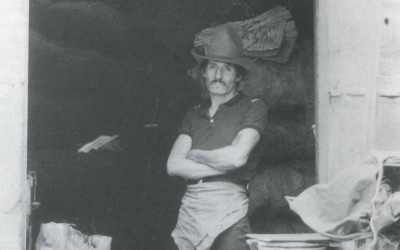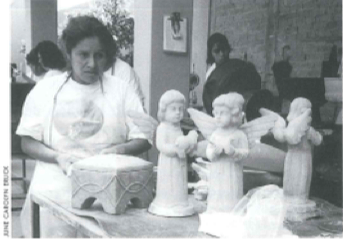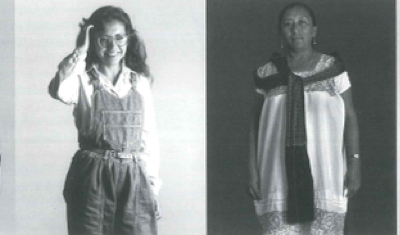More than Popcorn Mexico’s Cinemex

Amores Perros is popular in both sides of the border.
Miguel Angel Davila loves movies. Yet, ever since the ’93 Harvard Business School graduate returned to Mexico, he almost never watches them at least not in movie theatres.
It just seems too work-related. That might be better understood once one realizes that 35-year-old Dávila and his two partners are responsible for a Mexico City- headquartered company known as Cinemex, which has 317 movie screens in 21 theatre complexes. The chain primarily located in malls has captured 52 per cent of Mexico City’s movie theatre market, and 23 per cent of the national market, Dávila said in a telephone interview from Mexico City. Earlier this year, Cinemex, with 2,100 employees, was named International Exhibitor of the Year at the National Organization of Theatre Owners’ Show West in Las Vegas.
“I wasn’t going to be in the movie business. It’s not what I imagined for myself,” Davila admits, citing his previous experience as an analyst at McKinsey and several Mexican government agencies. “I went to Harvard Business School because I thought I’d be in the government, in the bank or treasury, and wanted an understanding of business. I never thought I’d start a business myself.”
It all began at Harvard Business School. Dávila and Matthew Heyman met each other as they ran to class on the morning of their first day of Harvard. Dávila and Adolfo Fastlicht became acquainted at the weekly poker games organized by the Mexican students at HBS. The three soon-to-be partners came from very different backgrounds, says Dávila. Heyman, who had worked for the Toronto-based film exhibitor Cineplex Odeon, was toying with the idea of a chain of movie theatres outside the United States. Fastlicht’s family was well-known in Mexico City in real estate development and construction. Dávila thought the idea of running a business right out of school was appealing.
Harvard Business School has a second-year field study requirement, and Dávila, Heymann, and Fastlicht agreed to use it to come up with a business plan, which ended up winning the HBS business plan competition for that year. The 93-page plan recommended an emphasis on customer service, continuous showings of films, quality control, theatre comfort, and employee training. The plan also anticipated advance ticket purchases by phone and automated monitoring of concessions and ticket sales. While many of these qualities are found in large U.S. chains, Mexican movie houses at the time tended to show films only three times a day and had few creature comforts.
The three embarked on an ambitious plan to find financing. Right before graduation, while they scrambled to get the necessary backing, Dávila was trying to hold on to a job offer from Goldman Sachs and McKinsey, Fastlicht a job offer from Pepsico, and Heymann a job offer from Blockbuster Video. After many false starts, the project was underway, becoming the largest venture capital startup in Mexican business history.
“Harvard Business School principally gave us the networking,” says Dávila. “We met each other and we met other people who helped us with fundraising and the plan. This was fundamental. But there was also the exposure to other businesses, to the way of thinking of the faculty. It was a combination of factors that helped us grow.”
He adds, “It was also a lot of luck and good timing.”
The good timing for Cinemex was bad timing for most everyone else in Mexico. The three HBS’ers launched their movie business just as the 1994 Mexican devaluation hit. Although the company lost financial capacity to expand as fast as anticipated, the devaluation drew up foreign competition and left national competitors decapitalized.
“We were essentially going into a virgin market,” says Dávila.
This coming year, the company plans to add 30 new screens in three theatre complexes, an investment of $30 million. In 2003, it has a contract for another 120 screens. Although Cinemex has expanded into Toluca and Guadalajara and has 100 per cent of the market share in Cuernavaca the focus is on domination in the Mexico City market. Concentration in the Mexico City market leads to economic savings in many areas, including film rentals, Dávila says.
“Mexico City is the largest city in the world,” he observes. “Why fight for Monterrey and Guadalajara?”
Technology is also helping the company grow and increase friendliness to the consumers. Although only 3 1/2 per cent of tickets are ordered over the phone, the phone line’s thousands of calls every week for information are an indication of consumer responsiveness. Internet sales are “not significant, but they are growing,” indicates Dávila. There are 100,000 registered users, and two million visitors to every week, he says. The site gives film synopses, a chat room, and even cyberposters.
Low employee turnover, stimulated by incentives for lower-level staff to become managers, also boosts customer service, according to Dávila. Employee loyalty also helps promote customer loyalty, not only because of customer attention, but also because of word-of-mouth recommendations to family and friends.
The chain’s emphasis is on detail such as freshly-made popcorn and highest-quality projection and sound equipment. Each of the partners has a different area of responsibility. Adolfo Fastlicht whose father, Mark, became Chairman of Cinemex is responsible for real estate, construction, and marketing. Matthew Heyman concentrates on product management, including film distribution. Matthew watches all the films to decide what goes into the theatres, says Dávila. Dávila is in charge of human resources and customer service, seeking to make the theatre-going experience enjoyable to Cinemex patrons. “When I go to the movies, I can’t enjoy myself,” he admits. “I keep thinking about the customers, and am always looking around to see what’s good or what’s bad.”
His favorite recent film was Amores Perros by Mexico’s Alejandro Gonzalez Inarritu.
But, Dávila reluctantly says, he didn’t watch it at the movie theatre.
Fall 2001, Volume I, Number 1
June Carolyn Erlick is publications director at the David Rockefeller Center for Latin American Studies. She spent 14 years as a correspondent in Latin America and is currently working on a biography of disappeared Guatemalan journalist Irma Flaquer.
Related Articles
Editor’s Letter: Mexico in Transition
You are holding in your hands the first issue of ReVista, formerly known as DRCLAS NEWS.
Over the last couple of years, DRCLAS NEWS has examined different Latin American themes in depth.
The View from Los Angeles
In 1999, on returning home to LA after four years at Harvard and in the Boston area,I ascended to the city of Angels for the annual gala dinner of the premier civil rights firm: the Mexican American…
What’s New about the “New” Mexico
On July 2, 2000, Mexican voters brought to an end seven decades of one-party authoritarian rule. Just over a year later, Mexico continues to feel the repercussions of this momentous victory…




